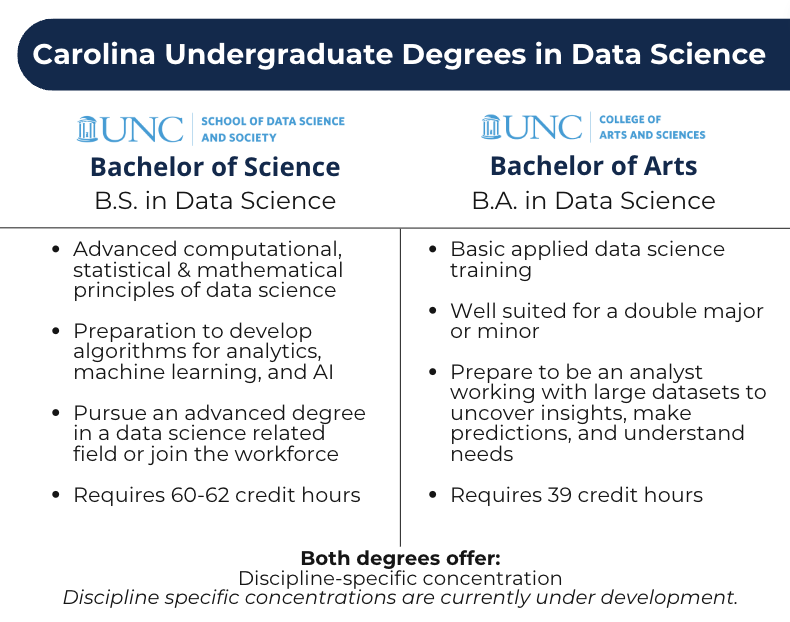Undergraduate Degree Details
Students will have the opportunity to choose from two degrees in Data Science. The Bachelor of Science in Data Science, housed in the School of Data Science and Society, will have 60-62 credit hours to complete. The Bachelor of Arts in Data Science, housed in the College of Arts and Sciences will require 39 credit hours.
Please see the following chart that details the similarities and differences between the two degrees.

